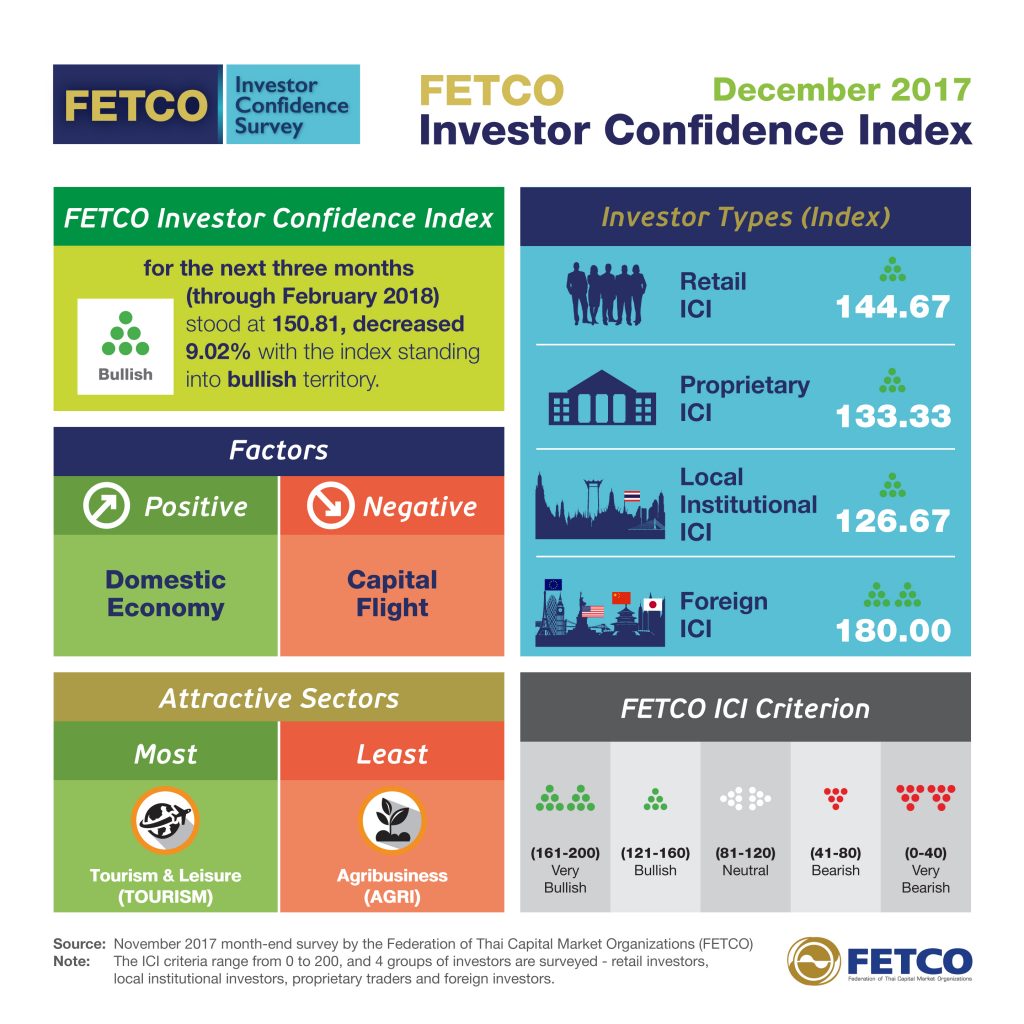 Dr. Santi Kiranand, representative of the Federation of Thai Capital Market Organizations (FETCO), commented on the monthly FETCO Investor Confidence Index (ICI) for December 2017: Details follow.
Dr. Santi Kiranand, representative of the Federation of Thai Capital Market Organizations (FETCO), commented on the monthly FETCO Investor Confidence Index (ICI) for December 2017: Details follow.
- FETCO Investor Confidence Index (ICI) for the next three months (through February 2018) stood at 150.81, falling into the ICI’s bullish range of 120–160, and down 9.02% from the previous month’s level of 165.77.
- The overall ICI fell, though the foreign investor ICI remained very bullish. Meanwhile, the ICIs for local institutional investors, proprietary traders, and retail investors all dropped but were in the bullish range.
- Tourism & Leisure (TOURISM) remained the most attractive sector for investors, while Agribusiness (AGRI) drew the least investor interest.
- The major factor bolstering investor confidence in the Thai stock market was the state of the domestic economy while international capital flows dragged down investor sentiment.
“Investment conditions fluctuated in November as the SET Index swung up and down in the range around 1700 points. However, investor confidence remained bullish, driven by Thailand’s economic growth in the 4th quarter which reached 4.3%—the highest in 18 months—as exports continued to grow steadily. Additionally, private investment and private consumption were expected to expand in this period though government investment is likely to shrink. Overseas, the positive effects of the current US stock market rally continue, US tax reform is making progress, and the new Chairman of the Federal Reserve is expected to maintain a monetary policy that includes gradual interest rate hikes. The European economy has also continued to grow. The Japanese economy is gradually growing, with continued monetary easing. However, policies in China bear watching after the recent National Congress of the Communist Party of China at which the Chinese government indicated it would resume a tightening of monetary policy in order to control the systemic problem of a high debt level. The tensions due to the Korean Peninsula conflict have adversely affected investments, though the market has not had a marked response yet.”


 TH
TH